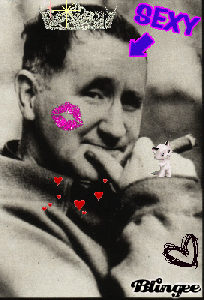Sexy Lady Song
A week or so ago, while driving with my parents, we went through a Jewish-orthodox neighbourhood. On the radio was an interview with the organizer of a classical music festival, plugging a Leonard Bernstein evening. Then, they played America, from West Side Story.
This sing has aged, and not incredibly well. I’m sure it was considered racially sensitive for the late fifties, but when it started on the radio, I felt slightly uncomfortable. That feeling basically stopped by the end of the song, when the music becomes amazing, and they could be in blackface for all I cared. The rhythm is amazing, the vocal work is great, and it’s completely sweeping. The thing that really struck me by the end of the song was, though, that all the men who walked in the streets we were driving in were not allowed to listen.
Some Jewish orthodox men, and especially those who are ultra-orthodox, will not listen to women singing. There are various levels of scrutiny this prohibition can come at, but in its basis, it relies on the fact that the voice of a woman is inherently erotic. I should point out that, depending on how strict a religious Jew is, they might not even listen to non-Hebrew, and non-religious music, but my concern is with women, as it usually is. Just like with segregated buses, which have only grown strong since this article, ultra-orthodox extremists seem to put plenty of blame on women being immodest and too seductive to be seen.
The reason for women sitting at the back is so men will not have to see them, but women are allowed to see men. Similarly, women are allowed to hear men sing, and just like in secular society, men are the rule, and women are the exception. In religious CD stores, it’s assumed that the singer is male, there there’s usually a sticker or an annotation that notes a woman sing on this album, or that there’s an additional album for women. This assumes that women either have no sex drive, or are less likely to become aroused.
As a fan of opera, a fandom which brought us a blog like Barihunks, dear god, do I beg to differ. I liked opera as a child, but I had only returned to it when I realized just how handsome and beautiful some of those performers are. Combined with their lovely voices, and the surprising amounts of sex that you’ll find in opera (when a fandom complains a production of Billy Budd isn’t homoerotic enough, you’ve really found a good one to be in), someone like me has more than enough reason to find a song sexy.
So if women have sex drives, too, should all singing just be banned? How about no. I think that, by 2011, maybe it’s time to realize that everyone but asexuals have a sex drive, and that’s basically fine. We’ve also advanced enough in psychology to understand that even rape isn’t really derived from sexual arousal and lack of control. Sexual assault is the result of power, and wanting to show it in terrible ways. The nearly constant assault women face (check the Hollaback of your choice), isn’t really because someone heard a very sexy lady-song. It’s fine to be aroused by things, but it’s less fine to put someone down via sexual means, because you feel like proving your superiority.
I leave you now with what is probably one of the sexiest duets out there, with Simon Keenlyside and Miah Presson, in a surprisingly non-rapey production of Don Giovanni, from the Royal Opera House, who never fail to deliver.



